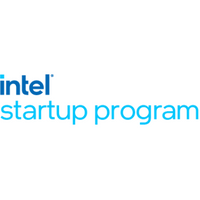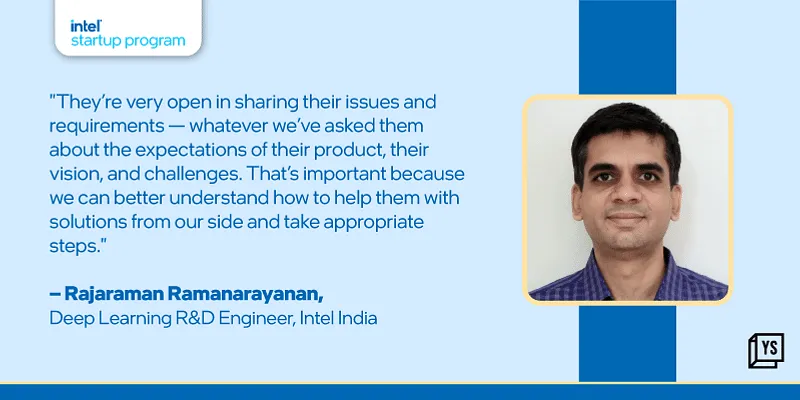
Intel Startup Program
View Brand PublisherIntel Startup Program-backed NeuroPixel.AI is helping fashion e-commerce become more inclusive with personalised catalogue imagery and virtual try-ons
As more people embrace online shopping for clothing and apparel, creating a personalised virtual trial experience for customers not just helps customers visualise products better but also helps retailers save costs on cataloguing.
With the COVID-19 pandemic fuelling a rise in e-commerce, global retail e-commerce sales reached $5.2 trillion in 2021 while the global fashion e-commerce market is expected to cross a valuation of $1.2 trillion by the year 2025.
To keep up with that demand, retailers are embracing technology not just in the logistics arena but also for customer experience to stay ahead of the competition. According to CB Insights, global spending on AR/VR retail showcasing is expected to grow at a compound annual growth rate of 138.7 percent through 2023, solving a number of challenges for retailers — one of them being inclusivity for fashion retailers.
Fashion for everyone
“Today, if you look at most shopping platforms globally, you wouldn’t say that there is an ideal level of diversity and inclusivity amongst catalogue models. The problem is that bringing in that ideal level of diversity would often be prohibitively expensive,” says Arvind Nair, CEO of , a deeptech startup whose proprietary Deep Neural Net (DNN) algorithms generate lifelike synthetic human models, that helps automate the highly manual and repetitive process of cataloguing apparel.
Helping their customers build a virtual try-on platform, the company’s solution leverages artificial intelligence and machine learning (AI/ML) to generate digital models for clothing to fit any potential buyer’s profile. “We can enable the apparel to be shot just once on a mannequin, and our DNN framework will help you drape the apparel onto models of different sizes and different poses seamlessly and cost-effectively. Our technology will result in a better online shopping experience for customers by enabling them to visualise how the same apparel would look on models of different sizes and ethnicities,” Arvind explains.
Founder match
NeuroPixel’s beginnings weren't your run-of-the-mill, emotionally-charged origin startup story, insists Arvind, who is an Indian School of Business alumnus and has worked on revenue growth at Myntra. Meeting his co-founder Amritendu Mukherjee, CTO at NeuroPixel.AI in 2020 at an international accelerator program, Arvind still had to work to get Amritendu venture into business with him. “I had to fight a lot to convince him to join me and go for something in e-commerce at that point. But we put a framework to it, did it very logically — it wasn’t like one of those emotional problems people had that inspired you to build a startup,” Arvind says.
“We went with whatever we could leverage both of our expertise in and would give us a chance to succeed. We do have differences and disagree on certain things but even then we’re still able to go out and have a drink at the end of the day. It’s like any relationship, it’s as simple as that,” adds Amritendu, a PhD holder from IISc specialising in Applied Machine Learning in the field of Image Processing.
In a little over a year, NeuroPixel brought together a team of 15 research engineers and 3D design specialists and built a beta version of their product that has seen interest from e-commerce company Flipkart’s LEAP accelerator program, giving them support and advice from online retail experts. “What we’re working on is resource-intensive and incredibly difficult to achieve — which is why we first focused on getting together a highly qualified team from India’s number one research institute, the IISc, and have engineers from some of the best colleges in not just India, but also the world,” Arvind explains.
Solutions through open communication
To help NeuroPixel train their proprietary DNN algorithm with the AI/ML computing power it needs, Intel Startup Program has helped the company by providing the Gaudi processing platform from Intel’s AI deep learning-focussed unit Habana Labs.
Mentor Rajaraman Ramanarayanan, Deep Learning R&D Engineer, Intel India says that working with the NeuroPixel team has been extremely smooth, with the team making quick progress in building their tech stack. “They’re very open in sharing their issues and requirements — whatever we’ve asked them about the expectations of their product, their vision, and challenges. That’s important because we can better understand how to help them with solutions from our side and take appropriate steps,” Rajaraman says, adding that the founding team’s enthusiasm about their product isn’t something seen too often in startups.
Arvind counts NeuroPixel lucky to be part of the Intel Startup program. “We’re incredibly excited about this partnership as training our algorithms requires significant compute power on an ongoing basis. Like most deeptech startups, it’s a terrific opportunity for us to get expert advice from veterans in the field on how best to optimise our training strategy, and how we could possibly do some trials on Intel’s class-leading infrastructure to optimise costs over the long term,” he says.

Scale and deploy
The company has so far signed agreements with two domestic clients to deploy their product within the next three months, with plans of taking the company international to Singapore and Dubai in about six-to-nine months.
In the long run, NeuroPixel sees their product evolving into a self-service platform for cataloguing, where clients can simply upload apparel on a mannequin, select the model and poses, and download high quality images seamlessly.
“Enabling this cost effectively at scale will result in more relatability for the end consumer, which should translate to a higher conversion rate (more sales) and lower returns and exchanges (lower operations costs, and higher margins). We’re certain that what we are building has the potential to be one of the biggest growth-hacking levers in the world of fashion e-commerce over the next few years,” Arvind concludes.
The Intel Startup Program: Enabling startups to scale their game-changing innovations
The Intel Startup Program is Intel India’s flagship program to engage with technology startups who have an IP or innovative solutions that have the potential to create impact on customers and align with Intel's focus areas. The program is at the forefront of engaging with India’s startup ecosystem through high impact collaborations with the industry, academia and government, and runs multiple initiatives that are either vertically aligned or focused on emerging technologies.
It engages with startups that have a unique global or local value proposition to solve genuine customer problems, enabling them with domain and business expertise from the industry and mentorship from Intel.







